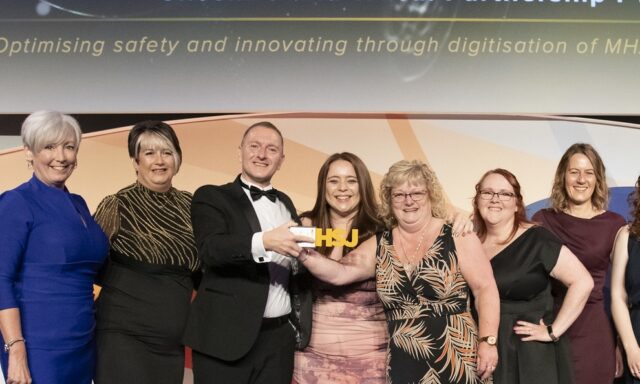
Emma Dicker explains how her structured approach to project management is helping shape digitisation efforts at Dorset HealthCare.
In an era where NHS digital transformation is more critical than ever, successful project delivery requires a meticulous approach, strong stakeholder engagement, and a clear focus on patient outcomes.
Emma Dicker, digital services project team manager at Dorset HealthCare, has been at the forefront of such initiatives, including the implementation of eMHA by Thalamos, a digital platform that has modernised the Mental Health Act (MHA) assessment process. In this interview, she shared her insights on project management best practices, overcoming challenges, and ensuring lasting impact in NHS digital transformation.
Core principles for successful project delivery
Dicker emphasised a structured approach to project management, tailored to the unique demands of each initiative. At Dorset HealthCare, projects are segmented into 18 distinct workstreams, encompassing aspects such as governance, resource and budgeting, procurement, process design, system integration, IT security, and training. This comprehensive framework ensures that all facets of a project are meticulously addressed. Dicker noted that this methodical approach provides a clear checklist, facilitating thorough oversight and accountability. She added: “Because we have that set format, it gives us a really clear checklist of have we covered everything. Have we spoken to all the right people? Has it been looked at by the right people.” In her experience, the robustness and detail of this workstream framework is specific to Dorset Healthcare and something she believes has been crucial to project success.
Challenges in NHS digital transformation
Implementing digital transformation within the NHS presents unique challenges. Dicker identified governance as a primary concern, underscoring the necessity of assembling the right project team and establishing a project board capable of decisive action.
She highlighted the importance of formal agreements, such as memorandums of understanding (MOUs), especially when collaborating with multiple organisations like mental health services and local authorities. “Getting that MOU signed and understood sets a good foundation for collaborative working. Everyone knows expectations and what they need to do,” she explained.
Information governance is another critical area, requiring extensive collaboration with data protection officers to develop comprehensive documentation, including data sharing agreements and data protection impact assessments (DPIAs). Dicker also stressed the significance of a robust benefits case, which is essential for project approval and subsequent measurement of success. She asserted that without demonstrating value for money or a significant improvement in patient outcomes or staff morale, projects are unlikely to receive the necessary support.
Effective stakeholder engagement and collaboration
Engaging diverse stakeholders is pivotal for the success of complex healthcare projects. She advocated for adaptability in communication, tailoring messages to suit different audiences. She acknowledged that resistance to change is common and recommended addressing concerns promptly through targeted engagement sessions. Dicker shared an instance where a sceptical approved mental health professional (AMHP) became a strong advocate for the eMHA by Thalamos project after being actively involved in the process. “If you can take someone who is resistant, engage them so much that they turn into an advocate, that then trickles down into their team,” she said.
To ensure frontline teams and clinical staff are engaged throughout the project lifecycle, Dicker touched on the importance of making stakeholders feel included in decision-making processes. This involves clear and swift communication, addressing feedback, and involving end users in the development of training materials. Such inclusive practices build confidence and encourage adoption of new systems.
Balancing legacy systems with innovation
Transitioning from legacy systems to innovative digital solutions requires a delicate balance. In the eMHA by Thalamos project, her team conducted extensive process mapping to understand existing workflows. This analysis identified inefficiencies, such as redundant steps in the paper-based process, which were streamlined in the new digital system.
Dicker highlighted the importance of preserving familiarity for users while eliminating unnecessary complexities. She also underscored the value of project managers becoming subject matter experts, enabling them to ask pertinent questions and ensure comprehensive coverage of all aspects of the project. It’s a discipline she is particular thorough on, ensuring she knows an area like the Mental Health Act to a level where she can ask the right questions and then expect buy in from different stakeholder groups.
Ensuring sustainability and continuous improvement
Transitioning a project into business as usual (BAU) requires careful planning to ensure sustainability. Dicker identified key areas such as assigning system ownership, managing changes, and appointing a service owner at the board level to oversee ongoing developments. Early engagement with stakeholders is vital for building relationships and ensuring a smooth handover. She noted that strong partnerships between service providers and system owners create a platform for addressing issues and facilitating continuous improvement.
Advice for future digital projects
For NHS teams embarking on digital transformation journeys, Dicker suggests allocating sufficient time to establish solid foundations and build the right relationships. She also stressed the importance of having decision-makers involved early, keeping project boards appropriately sized to maintain efficiency and project managers immersing themselves in the subject matter to understand the nuances of the area — which then fosters confidence among stakeholders.
Addressing concerns about adoption, Dicker believes in focusing on building momentum and leveraging advocates within stakeholder groups. She believes that effective communication and comprehensive training packages are key to overcoming resistance and ensuring successful implementation. Reflecting on the challenges of influencing stakeholders, she added that building mutual respect and understanding opens doors and facilitates project success.
Key takeaways for leading successful digitisation projects:
- Establish a structured approach — Define clear workstreams and governance structures to ensure every aspect of a project is accounted for. Having a methodical checklist ensures nothing is overlooked.
- Engage stakeholders early and continuously — Tailor communication for different audiences, address concerns proactively, and involve end users in decision-making. Turning sceptics into advocates can drive adoption and long-term success.
- Focus on sustainability from the outset — Assign clear system ownership, ensure processes for ongoing management are in place, and foster strong relationships with partners to support continuous improvement and adaptation.
By following these principles, NHS teams can navigate the complexities of digital transformation, ensuring that projects not only succeed at launch but continue delivering meaningful benefits in the long term.



